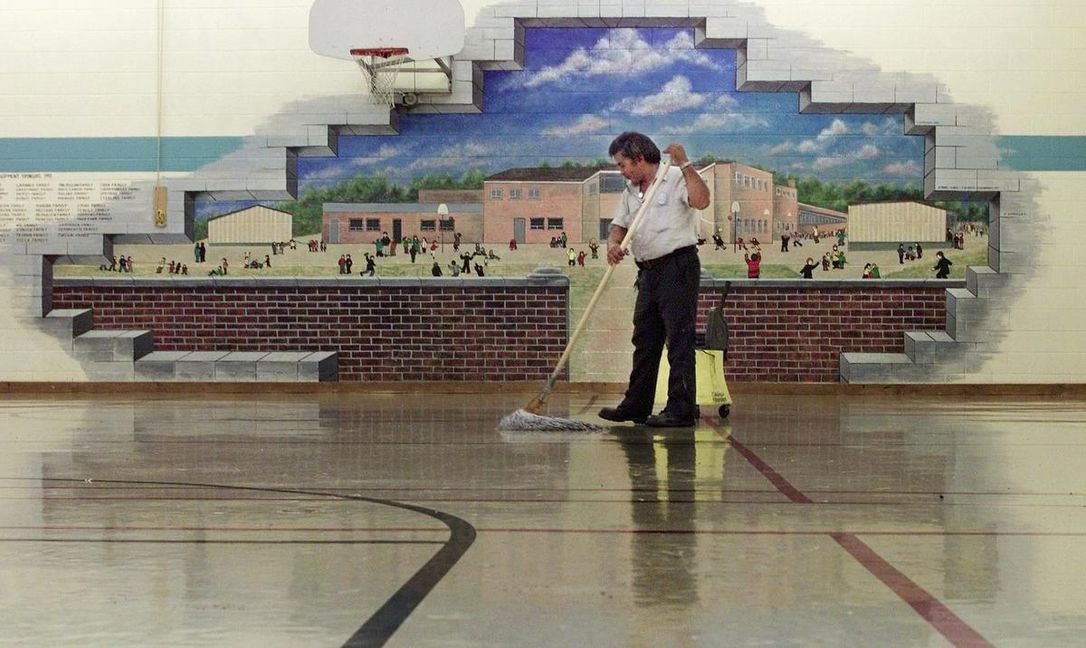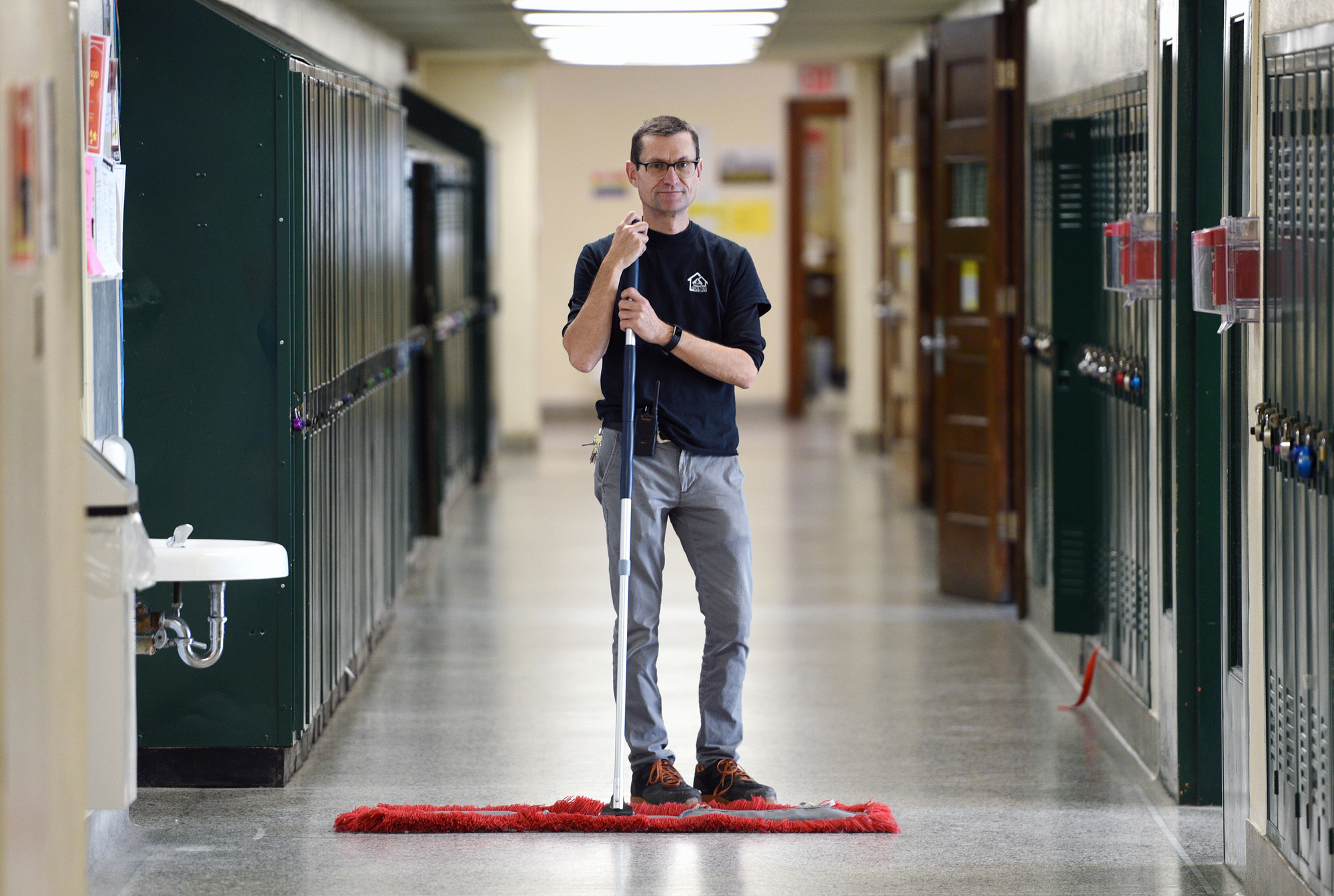$15.9-billion of disrepair has been allowed to accumulate in Ontario’s publicly funded schools because of gross provincial underfunding to school boards for over two decades.
- Underfunding of school renewal and repairs
- Underfunding of operational maintenance
- Underfunding of new schools
Operational maintenance is carried out by the very important people in our children’s schools known as caretakers and custodians.
Wow! How could a custodian ever get this floor clean? We have dozens of photos of damaged floors in schools across #Ontario that are worn from age.
Let's show our children that we value education and Fix_Our_Schools.#onted #onpoli pic.twitter.com/C8ONUQREL0— Fix Our Schools (@Fix_Our_Schools) March 5, 2019
These hard-working individuals are the people who may set up tables in your children’s school gymnasium each day to transform it into a lunchroom. They may be the people who enable a community event to readily take place at your local school. They are most certainly the people who clean your children’s schools and take care of many routine maintenance items. They are also the people who are charged with the task of “flushing the lead pipes” every morning to ensure lead doesn’t get into our children’s drinking water at school.
https://twitter.com/Veeshandle/status/1174291662568349697?s=20
A good caretaker can work magic and make an older school with a number of outstanding larger repairs still feel safe, clean, healthy and generally a pleasant place to be for 6-8 hours each day.
According to economist Hugh Mackenzie, increased provincial funding for operational maintenance is a key component of an overall provincial funding strategy that would enable school boards to truly Fix Ontario’s Schools and eliminate the $15.9-billion repair backlog in schools. Mackenzie estimated that an 8.7% increase in provincial funding of operational maintenance was needed – totaling $165-million/year.
And yet, under Doug Ford’s government, we know that as of September 2019, there were 53 fewer caretakers in the TDSB’s 600 schools. We don’t have data yet for other school boards. However, we do know that more – not less – caretakers and custodians are needed to ensure all Ontario children attend schools that are safe, healthy and well-maintained. We also know that Education Assistants and other Education Workers such as office staff all play an important role in ensuring our children’s schools are safe, clean and welcoming each day.


